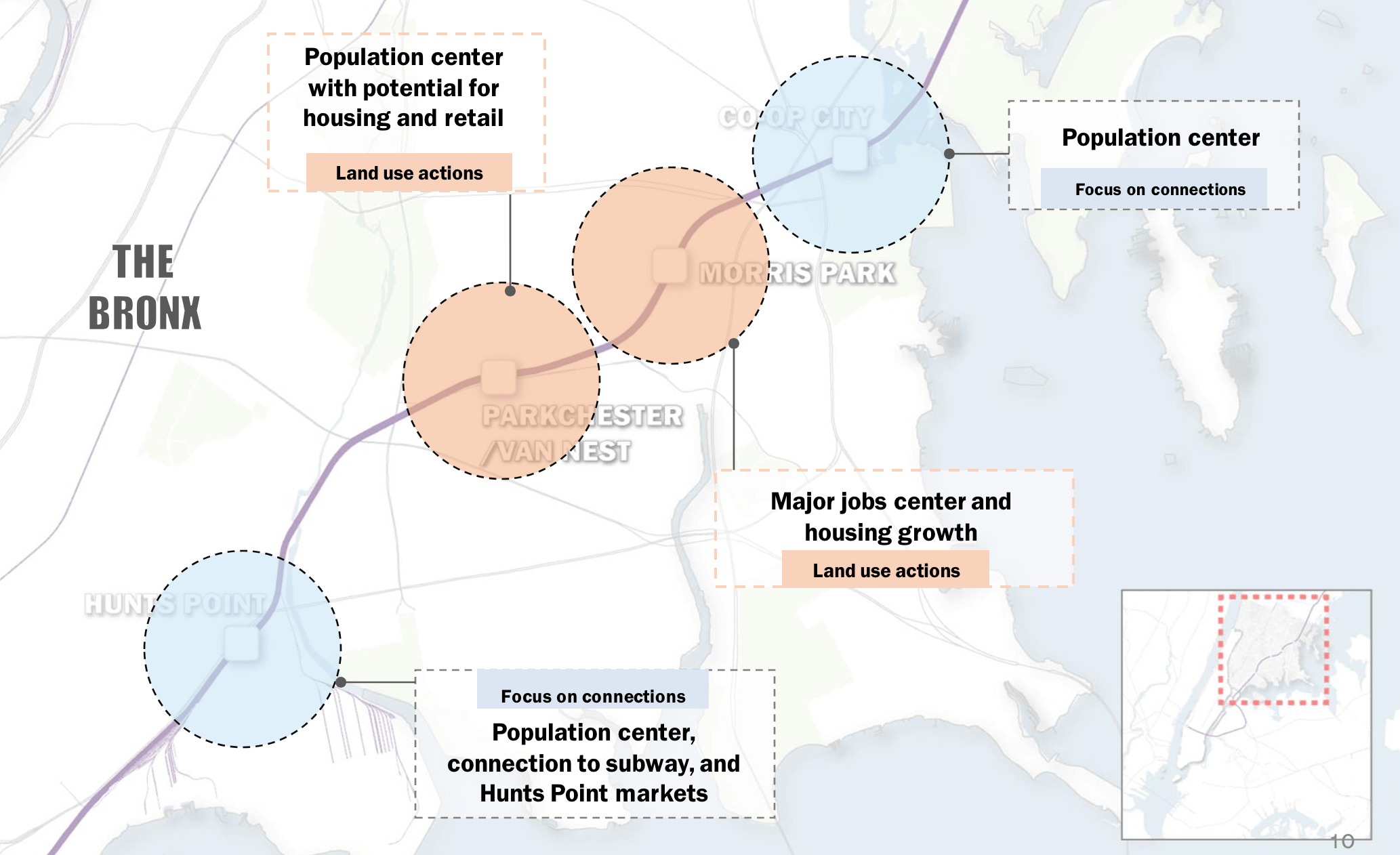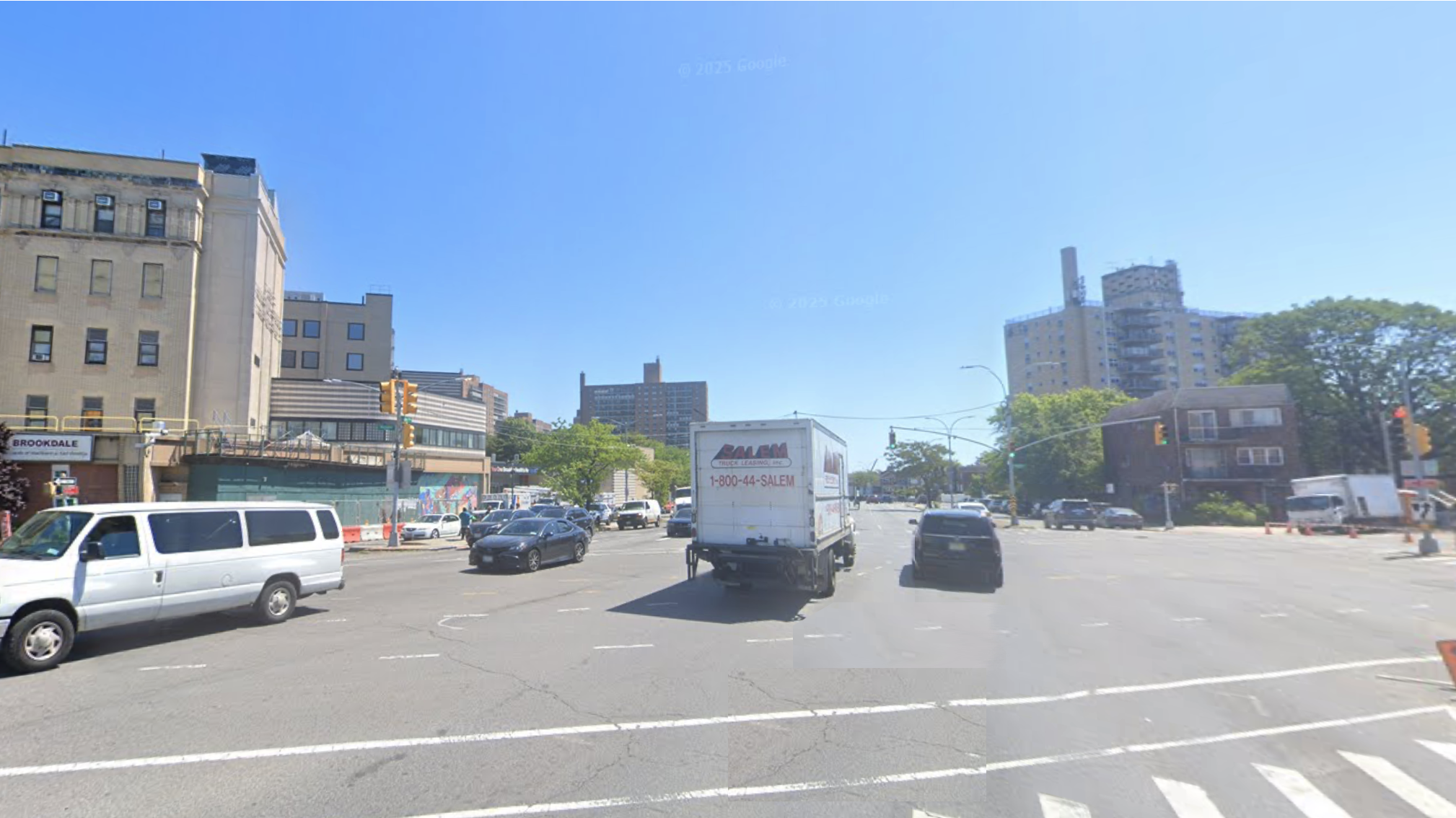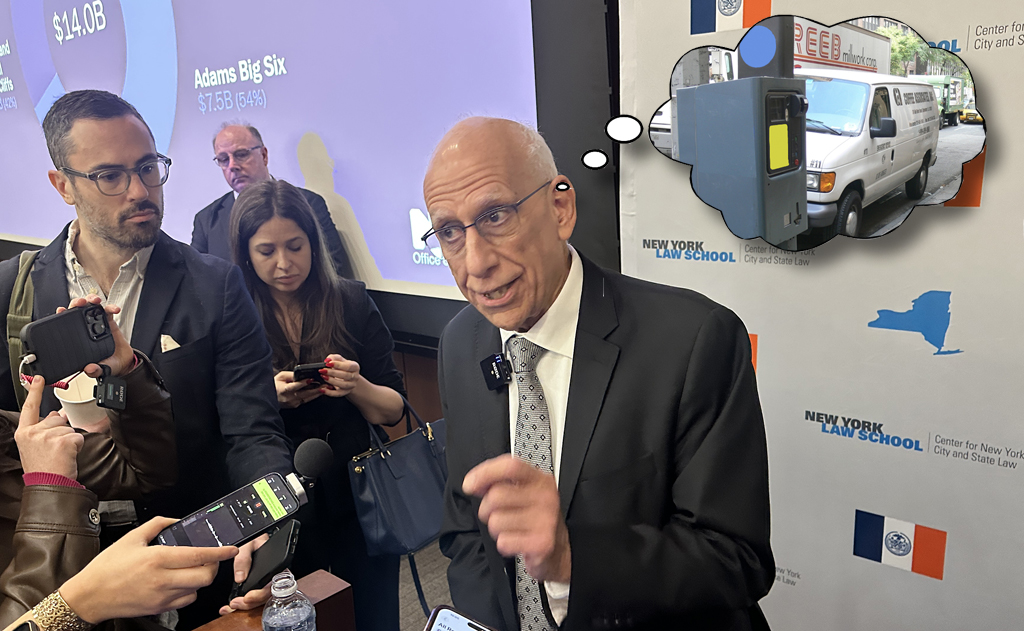Proposed apartments and commercial spaces near new Metro-North stations opening in the Bronx later this decade may include as many as 200 parking spaces each despite the city's move to waive car storage requirements for "transit-oriented" projects, developers and city officials said Tuesday.
Testifying at City Hall on proposed rezonings around two of the four new transit stops, at Morris Park and Parkchester/Van Nest, planners and builders insisted that the elimination of parking mandates would not mean the elimination of parking — even if building car storage jacks up the cost of housing and rent in areas that residents and workers could easily access car-free.
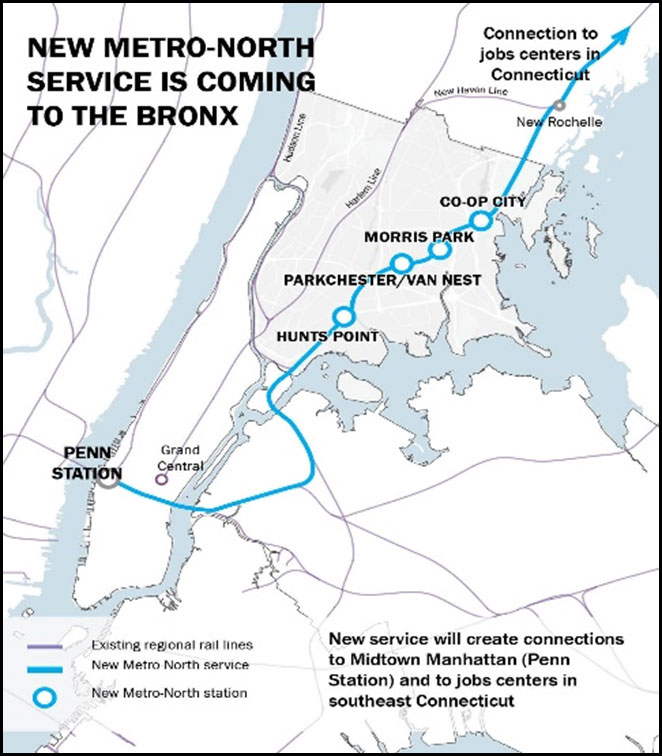
“We recognize and have heard the importance of parking. There are no parking minimums, but we certainly expect developers to provide parking,” said Bronx City Planning Director Paul Philips after multiple council members expressed concerns — contradicted by data and reality — that the new stations and adjacent developments would not have any mandated parking requirements.
Robert Moses-era mandatory parking minimums stunt development to this day across the city's low- and mid-density zoning districts. The high cost of building parking garages gets passed on to tenants, driving up rents and exacerbating the city's housing crisis. Mayor Adams's housing plan, "City of Yes," attempts to get rid of mandates to address the problem, but in the case of these Bronx developers, parking will apparently prevail even without a requirement.
The three affected community districts collectively have a higher rate of car ownership than the city as a whole — with 54 percent of households having at least one car, compared to 45 percent citywide. But the type of transit oriented development proposed by the rezoning, coupled with the new Metro-North stations, would give incoming residents public transportation options that make a car unnecessary — hence the term "transit-oriented development."
Despite that, all four representatives who spoke — Democrats Amanda Faris, Kevin C. Riley and Rafael Salamanca and Republican Kristy Marmorato — pushed for the developers to still build parking.
“Absence of parking mandates presents a significant challenge for many in our community who rely on vehicles, “ said Marmorato. “We risk placing an undue burden on these individuals [by removing parking mandates].”
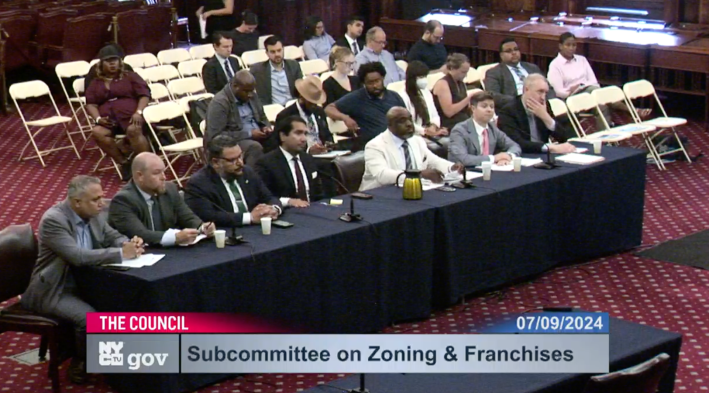
The potential 7,500 units that could be created if the rezoning passes would center around the new train stations — which should take residential parking out of the equation. That point appeared to be lost on the council members who seemed to speak only for their current car-owning constituents.
“Parking parking parking, a huge issue in this proposal,” said Riley, of the proposed mandate removal.
Apparently unconcerned by the cost of parking construction — or at least willing to offload it onto tenants — the four different developers who presented at the hearing all committed to building car storage in their new residential and commercial projects. One company promised as many as 200 spots.
“Parking will absolutely be a part of the project, it will likely be around 200 parking spaces,” a rep for Baker Development, which plans to build on a nine acre site at 1601 Bronxdale Avenue, testified.
Reps for ZP Realty, meanwhile, the developer behind a large mixed-use project that would span an entire city block at 1880 Tremont Avenue, also testified to plans to include parking in their new structures — including the renovation of existing spots at the site.
Rubén Díaz Jr., the former Bronx borough president and current senior vice president of strategic initiatives at Montefiore Medical Center, which plans to expand its campus near the new Morris Park station, echoed the developers' commitment to car storage.
“Whatever piece of property that we own and will build, we want to accommodate the employees and patients when it comes to parking,” he said.

City leaders are considering a slate of zoning policy changes for areas around the four new Metro-North stations, which will connect borough commuters to Penn Station via the Hell Gate Bridge when they open, tentatively, in 2027. In addition to eliminating parking requirements, the proposed rezonings would allow for greater density and incentivize the construction of schools.
Between the two stations, the changes will lead to an estimated 7,500 new units of housing — including 1,900 "permanently affordable" units — as well as new commercial space, community facilities, public plazas and around 10,000 jobs.
The new stations do not include parking as a part of the construction. MTA officials expect most commuters will get to the train without driving.
“We predict that the vast majority of folks will walk, or bike, or be dropped off. There will be a ‘kiss and ride’ drop off location and we are actively working with DOT to look into bus development,” said Joe O'Donnell, the MTA's director of public affairs.
The removal of parking mandates is a sticking point in debates over City of Yes as well — even though, at least in the case of the new Metro-North stops, the parking will be built despite the lack of force.
Some experts believe more needs to be done in areas with ample public transit to prevent developers from building unnecessary parking.
"The proposal to not have parking minimums is really a compromise, you can also say you're not allowed to build parking, or have parking maximums," Moses Gates, Regional Plan Association's vice president for housing and neighborhood planning, told Streetsblog.
[Correction: An earlier version of this story misattributed comments by Paul Philips to Michael Kavalar.]
